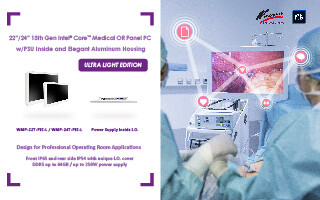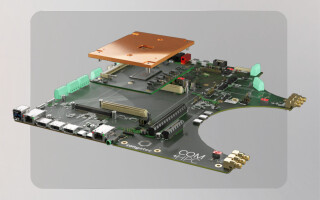Moving Mainframe COBOL Workloads to the Cloud: The New Reality
July 26, 2023
Blog

Today's rapidly evolving digital transformation landscape emphasizes speed and flexibility. That is a challenge for businesses that rely on mainframe COBOL workloads for mission-critical applications.
However, the shift towards cloud environments presents a promising solution. This article explores why moving mainframe COBOL (Common Business Oriented Language) workloads to the cloud is a reality and how organizations can effectively approach this transformation.
Let’s identify why these mainframe COBOL workloads pose several challenges that hinder business innovation and agility. These workloads have escalating costs, including software and hardware expenses and the high demand for knowledgeable mainframe development and support staff. Secondly, modifying mission-critical systems introduces substantial risks, potentially causing disruptions or failures in critical processes. Lastly, participating in digital transformation initiatives can increase technical debt, hindering future innovation and flexibility.
Cloud systems offer numerous advantages, making them the future destination for mainframe COBOL workloads. Scalability becomes seamless with access to abundant resources like compute, memory, and storage. Organizations can adjust their capacity based on demand, ensuring optimal performance without significant upfront investments. Secondly, cloud environments provide effective cost models that enable more effective resource allocation and budget optimization.
Workloads that benefit from the move to the cloud include batch and “last step” processes. Examples include stand-alone statement or report generation processes, sequential file batch processes, processes that are not revenue generating but are expense such as compliance related batch processes, and independent processes that generate data not needed in real-time but later provisioned into necessary environments.
To successfully migrate mainframe COBOL workloads to the cloud, organizations should consider distinct approaches that focus on application logic and data modernization. By decoupling the logic and data components, businesses can control change, validate success incrementally, and reduce modernization efforts' complexity, duration, and cost. Gartner suggests there are five fundamental approaches, known as the "5 R's" (re-hosting, re-platforming, refactoring, re-architecting, and re-building for application modernization) for modernization. Moving workloads will vary depending on the organization's specific IT and business requirements and may include variations or a blend of multiple approaches.
Moving mainframe COBOL workloads to the cloud is now a reality, supported by intelligent transformation tools that move beyond mere line-for-line replication. These tools generate applications and assets that span the modernization spectrum from producing developer-ready Java applications using standard and open-source frameworks, such as Spring framework, to straightforward cross-compile solutions that generate performance-oriented Java bytecode. They can also improve understanding of mainframe applications and offer automated transformation processes that reduce project durations, costs, and risks. Testing and validation also become more efficient with consistent and predictable processes and outcomes.
Incremental modernization has emerged as a critical application modernization strategy. It enables organizations to create smaller, building-block projects that mitigate risk and pave the way for more significant modernization initiatives. Cloud cost reduction benefits allow businesses to allocate saved resources towards more complex modernization projects, fostering overall application modernization and reducing technical debt.
The era of successful, predictable, and consistent movement of mainframe COBOL workloads to the cloud has arrived. By embracing cloud environments, organizations can unlock the benefits of scalability, cost-efficiency, and improved agility. Incremental modernization approaches and intelligent transformation tools enable businesses to navigate the migration journey while minimizing disruption, reducing costs, and tackling technical debt. As a result, application modernization accelerates, and businesses can confidently embrace the future with transformed mainframe COBOL workloads in the cloud.
Venkat Pillay is the CEO and founder of CloudFrame, an application modernization software company that provides solutions that address the challenges of transforming mainframe COBOL applications into maintainable Java.





